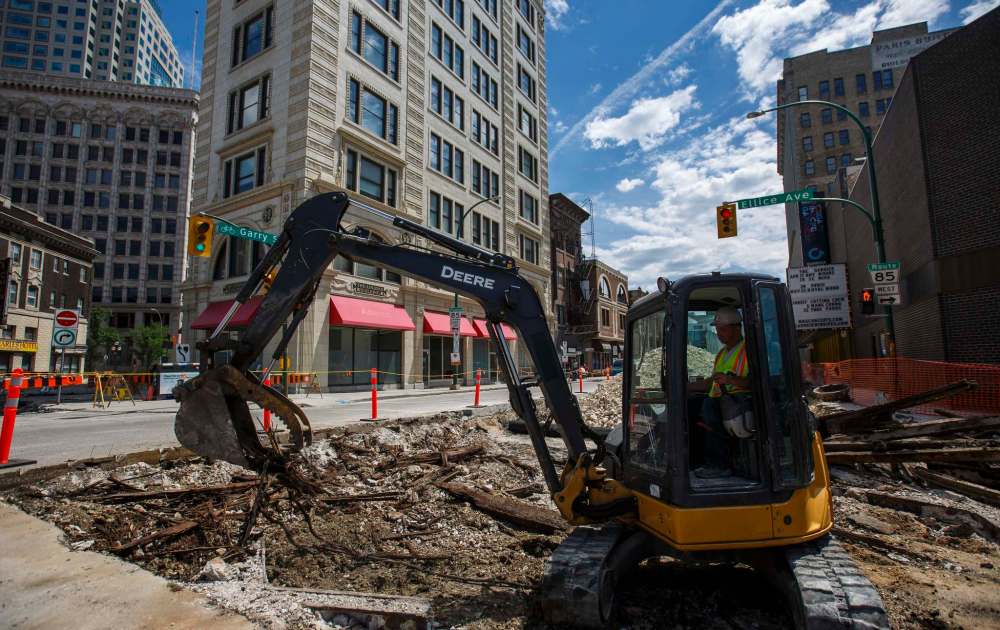City to boost street construction standards
Read this article for free:
or
Already have an account? Log in here »
To continue reading, please subscribe:
Monthly Digital Subscription
$1 per week for 24 weeks*
- Enjoy unlimited reading on winnipegfreepress.com
- Read the E-Edition, our digital replica newspaper
- Access News Break, our award-winning app
- Play interactive puzzles
*Billed as $4.00 plus GST every four weeks. After 24 weeks, price increases to the regular rate of $19.95 plus GST every four weeks. Offer available to new and qualified returning subscribers only. Cancel any time.
Monthly Digital Subscription
$4.99/week*
- Enjoy unlimited reading on winnipegfreepress.com
- Read the E-Edition, our digital replica newspaper
- Access News Break, our award-winning app
- Play interactive puzzles
*Billed as $19.95 plus GST every four weeks. Cancel any time.
To continue reading, please subscribe:
Add Free Press access to your Brandon Sun subscription for only an additional
$1 for the first 4 weeks*
*Your next subscription payment will increase by $1.00 and you will be charged $16.99 plus GST for four weeks. After four weeks, your payment will increase to $23.99 plus GST every four weeks.
Read unlimited articles for free today:
or
Already have an account? Log in here »
Hey there, time traveller!
This article was published 03/03/2020 (2168 days ago), so information in it may no longer be current.
Winnipeg is adding new road construction rules with an eye to making its streets last longer.
The changes should allow concrete construction to last 25 per cent longer and add 15 per cent to the lifespan of asphalt, said Brad Neirinck, City of Winnipeg engineering manager, noting local construction standards have lagged behind those of other Canadian cities.
“We’re behind the times. We’re trying to move our specifications up to match what other jurisdictions are doing and improve our life cycle,” he said Tuesday.

The new standards would ensure a higher quality of limestone, gravel and concrete are used to build certain roads, which would be stiffer and offer better drainage, helping them hold up better, said Ahmed Shalaby, a civil engineer who works with the city.
“The improvement in performance is actually quite significant. Some of these materials can be twice as good as what we were using previously,” Shalaby told reporters.
“It will drain faster, it will be stronger, it will have fewer cracks.”
During Tuesday’s public works committee meeting, Shalaby warned councillors Winnipeg’s previous road standards were “in a way, obsolete.”
The higher standards should also prevent some streets from requiring repairs every five or 10 years, he said.
Developers at the meeting raised a series of concerns, including the spectre of increased costs and sending more rejected road materials to the landfill.
Other issues about the new material rules could make it difficult for contractors to budget for work, said Chris Lorenc, president of the Manitoba Heavy Construction Association.
“We don’t know the extent to which it’s going to be subject to rejection… That creates risk, uncertainty and a potential spike in prices,” he said.
However, city council’s public works chairman expects the changes will finally address citizen complaints that local roads haven’t been built to last.
“We needed to get with the times and join other jurisdictions in building roads that are going to be built better and last longer,” said Coun. Matt Allard (St. Boniface).

Despite industry concerns, it’s not clear if the change would actually increase construction project costs, Allard said. Even though the city would require that higher-quality materials be used, projects may also use smaller amounts of them, he said.
“We need to go into the field and apply it to know exactly how much it’s going to cost,” Allard said.
After hearing multiple presentations from concerned members of the construction industry, city staff said two key compromises should help address any potential issues: the higher standard for construction work will be implemented this year on contracts and subjected to ongoing review by a working group with industry members, and developers of some private-sector projects will be exempt from the new rules until 2021.
In October, the city’s public service is expected to provide an update on how the new standard works out.
joyanne.pursaga@freepress.mb.ca

Joyanne is city hall reporter for the Winnipeg Free Press. A reporter since 2004, she began covering politics exclusively in 2012, writing on city hall and the Manitoba Legislature for the Winnipeg Sun before joining the Free Press in early 2020. Read more about Joyanne.
Every piece of reporting Joyanne produces is reviewed by an editing team before it is posted online or published in print — part of the Free Press‘s tradition, since 1872, of producing reliable independent journalism. Read more about Free Press’s history and mandate, and learn how our newsroom operates.
Our newsroom depends on a growing audience of readers to power our journalism. If you are not a paid reader, please consider becoming a subscriber.
Our newsroom depends on its audience of readers to power our journalism. Thank you for your support.








